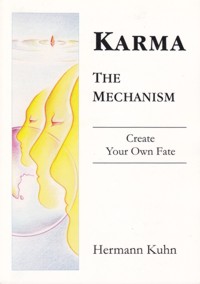
Samayikachchhedopasthapanaparihararavishuddhisukshmasamparayayathakhyatamiti charitram (18)
Directing our activities (charitra) towards freedom from all karmic limitations means:- equanimity
- restoring equanimity after we lost it
- completing all unfinished activities
- actively orienting our life towards expansion
- implementing the activities and attitudes listed in this chapter. (18)
Equanimity
means not to become unbalanced at the occurrence of either negative or positive events.
Our own emotional attachment to particular themes of life is the prime cause for the manifestation of inner and outer events. Once we begin to really understand this, we acquire a sovereign attitude that prevents emotional reactions - which these events occasionally trigger within us - from fundamentally disturbing our inner balance.
Once we understand the foolishness of making unpleasant situations more uncomfortable by creating further negative emotions, we have progressed considerably towards controlling our karmic environment.
Restoring equanimity after we lost it
As long as we are subject to karmic mechanisms, all kinds of external or internal events may trigger strong passionate reactions within us. These intense emotions can easily overshadow our awareness so completely that we lose our ability to discriminate and decide reasonably.
An effort to restore our equanimity becomes only possible when our awareness is not totally dominated by the karmic manifestation any more. At this point in time we usually see the absurdity of our reaction, but are still under the sway of strong (negative) emotions (e.g. jealousy) that impede part of our consciousness. If at this time we make a conscious effort to regain our equanimity - even though it may hurt our pride etc. - we build up a dynamic momentum that will eventually enable us to control any karmic manifestation.
Striving for equanimity and its restoration does not mean to constantly observe and discipline all our life and emotions. Apart from the fact that this is impossible - especially during the onset of strong karmic domination - it would diminish our creativity and spontaneity so thoroughly that all new experiences and any expansion of consciousness would be blocked.
Regaining equanimity means to overcome our own pride, anger, irritation etc. at the manifestation of karma. It means to consciously decide not to prolong negative emotions. It means to consciously decide for a positive path that leads towards more understanding. This process can be trained and will grow with practice.
Completing all unfinished activities
frees our mind and emotion from open issues that 'are a load on our soul'.
Few people are aware how much energy they waste to control their sheer mountain of unfinished business. The very objects of daily life constantly direct our attention towards these matters: the telephone reminds us of things we should have talked over with someone long ago; our untidy desk tells us that important papers are about to drown in a heap of junk mail; the burned-out light-bulb warns us that access to the cellar has become a hazardous undertaking; - the list could easily continue.
Compensating for all this unfinished business takes far more energy than its completion would require. Concluding these issues often feels like a considerable liberation. When mind, memory and emotions are free from these matters, they become open for far more significant issues.
Actively orienting our life towards expansion
means to direct attention and action towards transcending our limits and boundaries.
The manifestation of karma often tires us bodily and emotionally. This may cause a profound longing for inner peace and equanimity. When - at times of less intense karmic activity - a (temporary) emotional equanimity arises, we usually try to hold onto this state[56]. Unfortunately this easily leads to a type of stagnancy where life becomes reduced to habit and anything new that may imperil this momentary stability is rejected.
Yet temporary equanimity does not remove the real reason for exhaustion and depression. They only disappear completely when the respective karmas are dissolved. Therefore any attempt to hold onto this state is doomed from the beginning.
If we orient our life towards the expansion of our limits, we automatically prevent this type of stagnation. But this means to intentionally break up all situations that present us with always the same, familiar events which long ceased to give us new insights and understanding. It means to break out of stagnant circumstances we only sustain because of our desire for comfort. It means to transform new insights into action and to explore paths whose course and final destination is open.
Certainly - this path takes effort, but this is only a small price to pay for the freedom from karmic restraints and the unfolding of new stages of life that bring us closer to realize the immense potential deep within us.
Implementing the activities and attitudes listed in this chapter
means:
- to prevent the binding of new karma
- to actively dissolve karmic bonds that already exist
- to conduct our activities consciously
- to be aware of our personal behavior
- to heed the needs of other beings
- to rethink our own situation
- to persevere at the confrontation with obstacles
- to direct our actions towards freedom from all karmic limitations (charitra).
* * *
The mechanisms and recommendations mentioned in this book are no mystic techniques. They are simple and easily applied in daily life.
Yet they lead to spiritual experiences and into dimensions of consciousness that goes far beyond anything we ever experience or even imagine while in the first stage of development (mithyaktva gunasthana). This expansion arises as soon as we remove the obstructions that hold it back. Once the obstacles are gone, the surging awareness, the bold expansion and the brilliant clarity that characterize all higher stages of development will unfold automatically. It is a path that is open to everyone at all times.
 Hermann Kuhn
Hermann Kuhn
